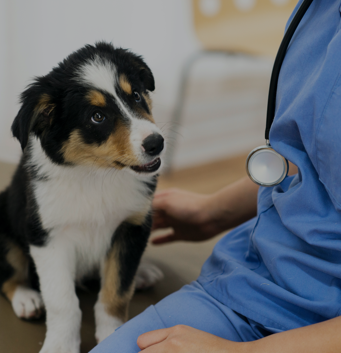How a Veterinary Specialty Hospital Can Treat Your Pet dog's Ailments With Advanced Techniques
Veterinary specialty hospitals play an essential function in addressing complicated wellness concerns in animals. They use innovative techniques and modern technologies that improve medical diagnosis and treatment. With access to specialized solutions, pet proprietors can locate customized remedies for their pets' disorders. This raises vital concerns about the particular methods employed and the benefits they offer. Understanding these elements can significantly impact an animal's recovery journey.
Understanding the Function of Veterinary Specialty Hospitals
Primary treatment vets offer vital services for pet health, veterinary specialty hospitals play a crucial duty in dealing with intricate medical problems that call for sophisticated diagnostics and therapy. These facilities are outfitted with specialized modern technology and knowledgeable specialists that concentrate on details areas of veterinary medicine, such as oncology, neurology, and cardiology.
Veterinary specialty hospitals promote a joint technique, commonly operating in combination with a pet's primary veterinarian to develop thorough treatment strategies. They provide accessibility to advanced imaging techniques, such as MRI and CT checks, which are not normally readily available in standard centers. Additionally, these hospitals offer extensive care systems for seriously sick animals, making certain continuous tracking and assistance.
Specialized Providers Supplied by Veterinary Professionals
Veterinary experts give important services that improve animal healthcare, specifically with innovative diagnostic imaging methods. These devices allow exact analyses of intricate medical problems, resulting in much more efficient targeted therapy plans. By integrating these specialized services, veterinary hospitals can considerably enhance client end results and general wellness.
Advanced Diagnostic Imaging
Advanced analysis imaging plays an important duty in modern-day veterinary medicine, enabling specialists to acquire in-depth understandings right into a pet dog's health. Methods such as X-rays, ultrasound, computed tomography (CT), and magnetic vibration imaging (MRI) permit vets to envision internal structures without intrusive procedures - Learn More. These innovative imaging methods aid in diagnosing a selection of problems, from growths and cracks to organ irregularities. By providing clear photos, they improve the accuracy of analyses, which is crucial for efficient therapy planning. Additionally, specialized veterinary radiologists translate these images, ensuring that refined concerns are not ignored. Inevitably, progressed diagnostic imaging contributes in providing considerable treatment, as it enables for early detection and intervention in a family pet's clinical issues

Targeted Therapy Strategies
Targeted treatment plans are vital for dealing with the details health demands of pet dogs, ensuring that each pet gets customized care tailored to its one-of-a-kind condition. Veterinary experts develop these plans based upon extensive analyses, consisting of sophisticated diagnostic imaging and research laboratory examinations. By focusing on the private pet's diagnosis, age, way of life, and type, experts can prescribe effective therapies, varying from medicine modifications to surgical treatments. These plans also integrate follow-up treatment and monitoring to track the animal's progress and make required changes. This method promotes optimal end results and improves the overall lifestyle for family pets facing complicated health and wellness difficulties. Ultimately, targeted therapy plans represent a commitment to giving the highest standard of veterinary treatment.
Advanced Diagnostic Techniques for Accurate Diagnoses
As pets face significantly complicated wellness obstacles, the integration of sophisticated diagnostic techniques has ended up being crucial for attaining exact diagnoses. Veterinary specialty hospitals use advanced imaging modern technologies, such as MRI and CT checks, to envision inner frameworks with remarkable clarity. These techniques allow veterinarians to recognize problems that might not be noticeable via traditional techniques.
Along with imaging, progressed lab examinations, including hereditary and biomarker analyses, supply vital insights into underlying problems. These examinations allow vets to find conditions at earlier phases, helping with prompt treatment. In addition, using endoscopy permits for straight visualization of internal organs, helping in the diagnosis of intestinal and breathing problems.
Ingenious Therapy Options for Complicated Problems
Ingenious treatment options for intricate problems in pet dogs have become an essential emphasis within vet specialty hospitals. Using innovative analysis devices, these centers improve their capability to recognize issues precisely and customize suitable interventions. Veterinary. Furthermore, the execution of minimally invasive treatments and progressed rehab methods offers pet dogs a far better possibility at recuperation with lowered discomfort
Advanced Diagnostic Devices
While the landscape of vet medication continues to evolve, sophisticated analysis tools have become essential possessions for addressing intricate conditions in family pets. These sophisticated innovations, consisting of digital imaging, ultrasound, and molecular diagnostics, enable veterinarians to obtain accurate information regarding a family pet's health standing quickly. High-resolution imaging methods can disclose elaborate information of interior structures, allowing precise evaluations of conditions or injuries. Additionally, hereditary testing offers understandings into genetic conditions, leading tailored therapy strategies. By leveraging these ingenious analysis devices, veterinary specialty hospitals can improve their capacity to recognize disorders that might have formerly gone undiscovered. Ultimately, these advancements add to enhanced outcomes and enrich the overall top quality of care provided to cherished animals.
Minimally Invasive Procedures
Developments in veterinary medicine have paved the way for minimally invasive procedures, which provide brand-new treatment alternatives for complex conditions in pets. These innovative methods, such as laparoscopy and endoscopy, enable veterinarians to carry out surgical treatments with smaller incisions, minimizing injury and recovery time. By utilizing specialized instruments and cams, vets can diagnose and treat issues like lumps, food poisonings, and joint problems with precision - Learn More. This approach lessens pain and leads to quicker recovery, allowing pet dogs to go back to their regular activities faster. In addition, minimally invasive treatments commonly lead to much less scarring and a reduced risk of issues. As veterinary specialty hospitals take on these advanced approaches, animal proprietors can feel extra certain in their pets' care and total health
Advanced Rehabilitation Techniques
As veterinary medication advances, advanced recovery techniques are becoming essential for managing complex conditions in pet dogs. These techniques encompass a variety of cutting-edge treatment choices, consisting of hydrotherapy, laser therapy, and physical treatment. Hydrotherapy utilizes water resistance to boost mobility and strengthen muscle mass, beneficial for pet dogs recovering from surgical procedure or injury. Laser therapy promotes healing by reducing inflammation and discomfort, fostering quicker recovery times. Physical treatment utilizes targeted exercises to improve stamina and flexibility, tailored per family pet's certain requirements - Vet services. Additionally, modalities like acupuncture and chiropractic care changes can better support recovery by reducing pain and boosting overall well-being. Veterinary specialty hospitals are progressively integrating these techniques, making certain family pets obtain thorough care that addresses both physical and psychological healing, eventually enhancing their high quality of life
The Relevance of a Multidisciplinary Technique
A multidisciplinary method in veterinary treatment significantly improves the read more treatment end results for animals, as it integrates knowledge from numerous specialties to attend to intricate health issues. This collective method includes veterinarians, experts, specialists, and support personnel collaborating to develop detailed therapy strategies tailored per pet's special requirements. By combining understanding from fields such as surgery, inner medicine, oncology, and recovery, veterinarians can determine hidden problems that might or else go unnoticed.
This technique promotes interaction amongst group members, guaranteeing that all aspects of an animal's health are thought about. A pet dog recouping from surgical treatment might profit from input from both a surgeon and a recovery professional, leading to a more reliable recovery process. Eventually, a multidisciplinary approach not just improves the quality of care yet also boosts the overall well-being of pet dogs, supplying them with the very best possibility for a successful healing and long-lasting health.
Cutting-Edge Innovation in Veterinary Medication

Telemedicine has additionally arised as a necessary resource, enabling vets to seek advice from with pet dog owners from another location, thereby facilitating timely interventions. Additionally, the combination of expert system in assessing medical data adds to extra effective treatment plans tailored to private requirements. Sophisticated research laboratory equipment enables rapid blood analysis and microorganism discovery, cultivating timely medical responses. As veterinary specialty hospitals proceed to integrate these improvements, they not only enhance the high quality of treatment yet additionally significantly boost the general health of pets.
Success Stories: Real-Life Examples of Pet Dog Recovery
Many heartfelt success tales show the exceptional healings of family pets treated at veterinary specialty hospitals. One such situation involved Bella, a Golden Retriever detected with a severe orthopedic concern. After sophisticated surgical intervention and rehabilitation, Bella was not only able to stroll again yet also to run happily in the park, much to her proprietors' pleasure.
One more motivating story features Max, a cat with persistent kidney condition. With specialized nutritional monitoring and cutting-edge therapies, Max's problem maintained, enabling him to restore his energy and appetite. His owners were tickled to see him go back to his spirited self.
Finally, Luna, a Dachshund who suffered a spinal injury, went through cutting-edge therapies, bring about a miraculous recuperation. These tales highlight the experience and empathy found in vet specialty hospitals, showcasing their capability to recover health and wellness and joy to beloved animals and their families.
Frequently Asked Concerns
What Should I Anticipate Throughout My Family pet's Specialty Consultation?
During a specialty assessment, pet proprietors can anticipate a thorough examination, comprehensive case history discussions, analysis tests, and tailored treatment alternatives. The veterinary expert will provide understandings and referrals for the family pet's specific health and wellness needs.
Just How Can I Locate a Veterinary Specialty Hospital Near Me?
To locate a veterinary specialty hospital nearby, one can make use of on the internet internet search engine, check neighborhood directory sites, or seek recommendations from primary veterinarians. Furthermore, pet owner discussion forums can provide useful understandings and experiences about close-by facilities.
Are Specialty Provider Covered by Animal Insurance Policy?
Specialty solutions might be covered by family pet insurance coverage, yet protection varies by policy. Proprietors must carefully review their insurance strategy information and consult their copyright to comprehend the level of insurance coverage for specialty vet services.
For How Long Will My Pet's Therapy Take?

The period of a pet's therapy can differ noticeably, often varying from a few days to several weeks. Aspects affecting this timeline consist of the specific condition, therapy type, and the pet's total health and action.
What Are the Expenses Connected With Specialty Veterinary Care?
The prices connected with specialty veterinary treatment can differ widely, commonly ranging from hundreds to thousands of dollars. Variables affecting these expenses include the complexity of the condition, needed treatments, and analysis procedures essential for effective care.
Veterinary specialty hospitals play a vital role in dealing with complicated health concerns in animals. Main care vets provide crucial solutions for pet health and wellness, vet specialty hospitals play a vital duty in attending to intricate clinical conditions that need innovative diagnostics and treatment. Veterinary specialty hospitals facilitate a collective technique, commonly functioning in conjunction with a pet's key veterinarian to develop complete care strategies. Cutting-edge treatment choices for complicated problems in pet dogs have actually emerged as an important focus within vet specialty hospitals. A multidisciplinary method in vet care considerably boosts the therapy results for animals, as it incorporates proficiency from various specialties to deal with complex health and wellness problems.